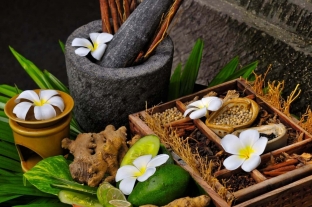One of the principles of Tibetan medicine says: "culprits" our ailments are wrong behavior and diet. Of course, all people are different and the circumstances of life are also not the same for everyone. And that is why Tibetan texts describe different circumstances, offer advice on behavior and diet in these circumstances. Everything matters for the restoration of energy: habitat, gender, season, of course, age, and so on. Еstet-portal.com introduces readers to some of the principles of Tibetan medicine.
Restoring energy: the intricacies of the Tibetan diet
Maybe you didn't really think about the fact that the diet for those living in regions with high humidity should be significantly different from the diet of the inhabitants of areas with a hot climate. But, nevertheless, it is so. In particular, the former need to eat foods that have hot properties, while the latter, as usual, should ignore them.
Adolescents under 17 years of age and people who have crossed the 70-year mark require a "warm" nutrition, as these two age groups have a cool nature. This means that these people do not have enough heat compared to people who are between the ages of 17 and 70. And therefore, children and adolescents as such a "warm" ginger is necessarily shown as a nutritional assistant. This spice balances Beken (this is how the Tibetans designate the vital principle), which prevails at this age.
And the elderly need to regularly add nutmeg to their food. Such a spicy supplement is very conducive to maintaining the heart in good shape and a wonderful sleep. For those who fall into the category of middle age, cardamom will be a good help for health, in particular, for the kidneys.

Energy recovery in winter: general recommendations
In winter, our body tries to accumulate more heat. To do this, we are required to eat not very heavy, but nutritious foods. And, accordingly, the amount of food eaten in winter should increase compared to the summer period. Particularly satisfying, but still not very heavy, should be dinner. But what about the recommendations of Western nutritionists that it is better to do without an evening meal or to be content with the lightest dinner possible?
According to the provisions of Tibetan medicine, the digestion of food in winter is faster due to increased heat. And the nights are longer during this period. And if your dinner is not nutritious enough, then the stomach, having digested food, remains empty longer than, for example, in summer. This, in turn, leads to an increase in another vital principle called Lung, and it significantly depletes the body's heat and along with it – precious energy.
What flavor of winter food do you prefer? Tibetans know that the most useful food in this cold season is salty, sweet or sour. But food with astringent or bitter tastes is better not to cook in winter.
Foods most preferred for consumption in winter
Eat more "warm" fruits: pineapples, peaches, apples. And you need to exclude from use "cold" and heavy: grapes, bananas, watermelon. Vegetables in general are all good except zucchini.
It will be great if you eat chicken, beef, lamb and fish in winter. And give up goat meat and pork.
It's good if light and warm soups and broths often appear on your table during the cold season. Soups are useful to prepare from rice and barley. You shouldn't get too carried away with wheat.
As you can see, restoring energy in winter does not require much effort, you just need to regularly follow the advice of Tibetan doctors.






Add a comment